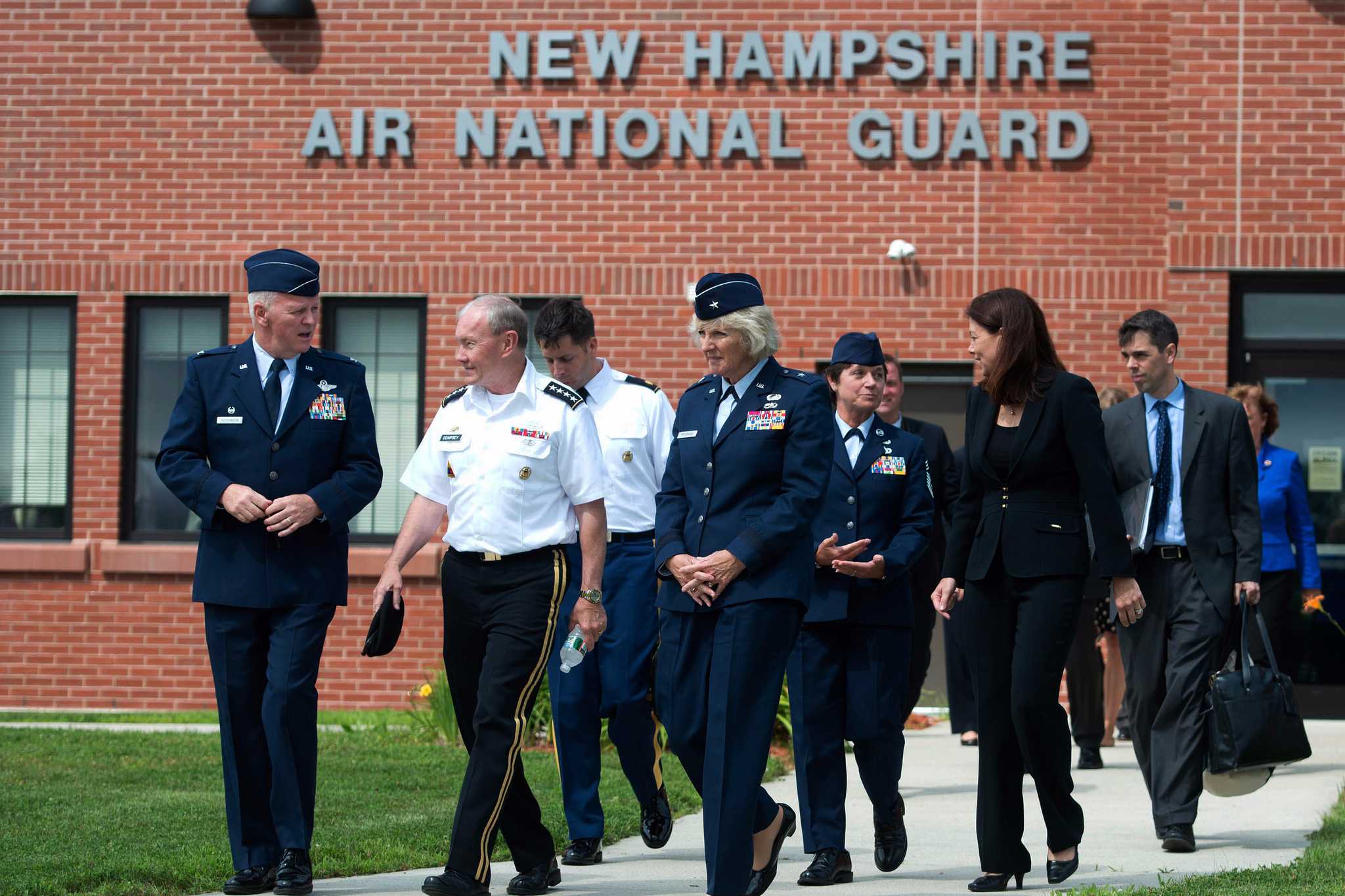 PORTSMOUTH, N.H. — Officials with an Air National Guard Base in New Hampshire have decided to retain chaplain invocations at military ceremonies despite receiving a complaint from a prominent professing atheist organization.
PORTSMOUTH, N.H. — Officials with an Air National Guard Base in New Hampshire have decided to retain chaplain invocations at military ceremonies despite receiving a complaint from a prominent professing atheist organization.
The Texas-based religious liberties organization First Liberty reported in a national press release on Monday that the Pease Air National Guard Base “will continue their tradition of including prayer during military ceremonies, despite receiving a letter from a special interest group demanding that they stop.”
“We’re very pleased to see the New Hampshire Air National Guard do the right thing and continue their tradition, as the law clearly allows,” Senior Counsel Mike Berry said in the statement. “It is perfectly constitutional to offer invocations at military events and service members have every right to exercise their faith under the First Amendment.”
Berry had sent a letter just last week to commanding officer Col. James Ryan to contend that the prayers are legal and do not need to be discontinued. He countered correspondence from the Wisconsin-based Freedom From Religion Foundation (FFRF), which sought to end the chaplain-led invocations out of its belief that their inclusion is unconstitutional.
Berry pointed to the Religious Freedom Restoration Act (RFRA) and the National Defense Authorization Act, as well as the Department of Defense (DoD) instruction entitled “Accommodation of Religious Practices Within the Military Services.” Berry said that under these rules, “the DoD must accommodate individual expressions of religious belief, which undoubtedly include a military chaplain’s invocation.”
First Liberty also noted the 1997 federal court ruling in Rigdon v. Perry, which upheld the rights of two chaplains who desired to preach in favor of banning partial-birth abortion.
“In Rigdon v. Perry, a federal court explained that when military chaplains are acting in a religious capacity—such as when conducting a sermon or offering an invocation—they are not acting under color of military authority, and ‘it is wholly appropriate for them to advance their religious beliefs in that context,’” Berry noted.
“Thus, when military chaplains engage in religious conduct, their conduct is protected under the First Amendment to the Constitution,” he said, concluding that the U.S. Constitution, federal law and DoD regulations alike all permit chaplain-led prayer at military events.
“Moreover, those legal authorities actually forbid military commanders from censoring or prohibiting such invocations,” Berry contended.
FFRF, however, had asserted that the prayers conveyed a governmental preference for Christianity, which it contended was unconstitutional.
“Christian prayers delivered at an official military event violate the Constitution’s mandate of government neutrality between religious beliefs,” FFRF contended. “Any prayer—including non-denominational prayer—violates the required neutrality between religion and nonreligion.”
“By imposing prayer on its guardsmen at mandatory events, the Air National Guard is violating the constitutional limits on government religious endorsement,” it said.
The organization also opined that the inclusion of the prayers is “unnecessary and divisive,” as well as “coercive” and “insensitive.” FFRF said that the invocations exclude those who don’t identify as atheists, and noted that military members are “free to pray privately or to worship on their own time.”
“The Air National Guard must refrain from lending its power and prestige to religion, amounting to a government endorsement that excludes the over 23% of military personnel who either express no religious preference or are atheists,” it said. “It is also simply insensitive for a government employer to inflict prayer on employees regardless of their personal beliefs.”
FFRF had not released a statement on the base’s decision to disregard its demand as of press time.
According to an article entitled “Christianity and the Civil War,” thousands of soldiers in both the Confederate and Union armies turned to Christ and had a great desire to hear the preaching of the word of God.
“A ‘Great Revival’ occurred among Robert E. Lee’s forces in the fall of 1863 and winter of 1864. Some 7,000 soldiers were converted. Revivals also swept the Union Army at that time,” it outlines. “Sometimes preaching and praying continued 24 hours a day, and chapels couldn’t hold the soldiers who wanted to get inside.”
“Chapels often were built in soldiers’ quarters. In 1864, the Army of Northern Virginia alone boasted 15 chapels. One chapel built by the Army of the Tennessee seated more than 1,000 people,” the article notes.
In 1863, Gen. Lee said to his troops, “Soldiers! We have sinned against Almighty God. We have forgotten His signal mercies, and have cultivated a revengeful, haughty and boastful spirit. We have not remembered that the defenders of a just cause should be pure in His eyes; that ‘our times are in His hands,’ and we have relied too much on our own arms for the achievement of our independence.”
“God is our only refuge and our strength. Let us humble ourselves before Him,” he declared. “Let us confess our many sins, and beseech Him to give us a higher courage, a purer patriotism, and more determined will; that He will hasten the time when war, with its sorrows and sufferings, shall cease, and that He will give us a name and place among the nations of the earth.”
Become a Christian News Network Supporter...


